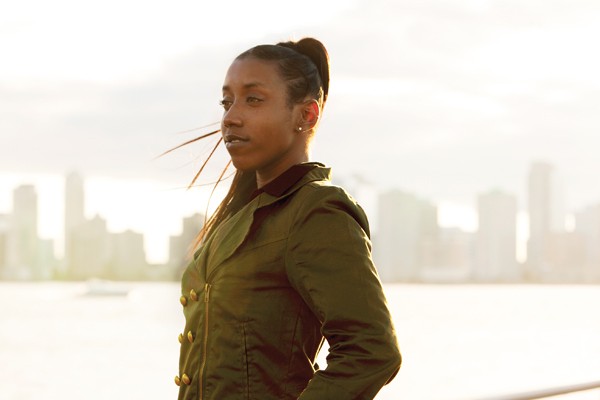The Outflix Film Festival enters its 17th year on a strong note, coming off its most successful edition ever with more and better films portraying the lesbian, gay, bisexual, and transgender perspective. This year’s entries topped 300 films, up more than 50 percent from last year, reflecting the festival’s growing profile. “It’s great for me, because I love to watch films,” says festival director Will Batts.
The annual festival is a fund-raiser for the Memphis Gay and Lesbian Community Center where Batts is executive director. “We have to have a really diverse lineup, because we serve a really diverse community,” he says. “We want to make sure we have women’s films, transgender films, and films with people of color who are leads. We want to make sure that the whole community can see themselves on the screen.”
Outflix was started in 1997 by Brian Pera, an acclaimed Memphis filmmaker. “He started it as a kind of experimental theater project,” Batts says.
Early in its existence, the festival was held on the campus at the University of Memphis before moving briefly to commercial theaters and then lying fallow for a few years. “We started it back up in 2005, which is actually how I got involved in the center,” says Batts.
After one year at the former Memphis Media Co-Op and another at the now-defunct Downtown Muvico theater, the festival found its permanent home at the recently remodeled Malco Ridgeway cinema. “We’ve been there through the transition and the remodel. It’s great. The only bad thing is that there are fewer seats now in the theaters, so we’re seeing more movies sell out.”

Out in the Night
Batts says that during his decade at the festival he has had a front-row seat for the technological transition that has affected every level of the movie industry. “The first couple of years, everything came in on VHS, so we had cases of VHS tapes. But this year, probably 95 percent of the films were digitally submitted. That means that a lot more filmmakers are getting their films in front of us. So we get a lot more variety.”
The weeklong festival begins on Friday,September 5th and runs for one week, screening 19 narrative features and documentaries. This year’s opening night film is Kidnapped For Christ, directed by Kate S. Logan.
“It tells the story of something we deal with at the community center all the time,” Batts Says, “which is this belief that gay and lesbian people are somehow damaged in some way and need to be fixed; parents immersed in this culture that tells them that their kids are bad or wrong or sinful or whatever, and they need to be sent off to some camp in the middle of nowhere to beat the gay out of them. We want to get the message out that this is really harmful, and it continues to this day.”
Among the feature-length movies will be shorts, screening both before the features and as part of a shorts program on Sunday evening. “I especially love short films,” Batts says. “There’s something really powerful about telling an entire story in five minutes. “You can watch some of them on YouTube, but that’s just not the same experience as sitting in a theater full of people watching a really powerful short film.”
Much has changed about film and television’s vision of homosexuality in the 17 years since Outflix started, but there’s still a long way to go. “I think there are more accurate portrayals of LGBT people, but it still hasn’t permeated the mainstream,” Batts says. “We’re moving closer to reality, but we’re not quite there yet. The films we show at Outflix are more real, because they’re made by LGBT filmmakers and they’re about and starring LBGT actors who know the experience. They’re not going to tone it down for an audience who won’t understand them. Some of the films are more open about sexuality, some of them are open about what it means to be transgender or intersexed, so they’re educational in a way. Some of the films are about injustice and intolerance. It’s a much more real portrayal of LGBT people. We don’t get to see ourselves portrayed on the big screen as real people, warts and all. And that’s why Outflix exists.”